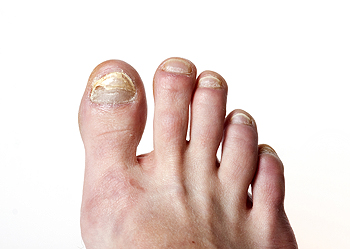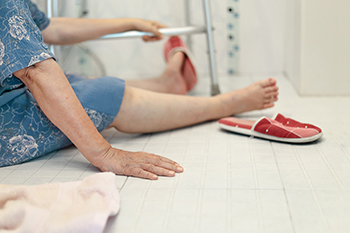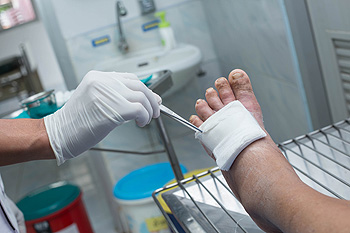Items filtered by date: September 2021
Plantar Warts Can Be Treated!
Can Children Develop Toenail Fungus?
While onychomycosis (toenail fungus) is a common condition, it can be rare among infants and children. This is because children’s nails are smaller and grow faster—making their toenails less hospitable to the fungus. However, when pediatric onychomycosis occurs, it should be dealt with swiftly and properly, as it is not good for a child to have any type of infection. Of course, prevention is always the best option, and something that should be highlighted as most children contract onychomycosis from someone in their own home. Don’t share toenail clippers, soap, towels or other personal grooming items with your child. Encourage them to keep their feet clean and dry, and to always wear clean socks and shoes, as well as flip-flops in public showers, locker rooms and around pools. If your child does develop toenail fungus, understand that what may be appropriate treatment for an adult, may not be safe for a child. If your child’s nails are thickened, brittle, crumbling, or yellowish, bring them to a podiatrist to receive an accurate diagnosis and proper treatment.
The health of a child’s feet is vital to their overall well-being. If you have any questions regarding foot health, contact one our our podiatrists of Newtown Comprehensive Foot Care. Our doctors can provide the care you need to keep you pain-free and on your feet.
Tips for Keeping Children's Feet Healthy
- Make sure their shoes fit properly
- Look for any signs of in-toeing or out-toeing
- Check to see if they have Clubfoot (condition that affects your child’s foot and ankle, twisting the heel and toes inward) which is one of the most common nonmajor birth defects.
- Lightly cover your baby’s feet (Tight covers may keep your baby from moving their feet freely, and could prevent normal development)
- Allow your toddler to go shoeless (Shoes can be restricting for a young child’s foot)
- Cut toenails straight across to avoid ingrown toenails
- Keep your child’s foot clean and dry
- Cover cuts and scrapes. Wash any scratches with soap and water and cover them with a bandage until they’ve healed.
If you have any questions, please feel free to contact our office located in Newtown, CT . We offer the newest diagnostic and treatment technologies for all your foot care needs.
The Consequences of a Fall
Falls are the leading cause of injury and hospitalizations in older adults across North America. Most falls occur in the home, due to slipping or stumbling. Falls can result in both minor and major injuries, from bruises and sprains to dislocations and fractures. Injuries sustained from a fall can make falling in the future more likely, as they can impair mobility and decrease an older adult’s self-confidence when it comes to getting around their home and community. There are several steps that you can take to prevent falls, including removing tripping hazards from the home, installing non-slip mats and grab bars in slippery areas, and using a mobility aid when needed. To learn more about preventing falls, please consult with a podiatrist.
Preventing falls among the elderly is very important. If you are older and have fallen or fear that you are prone to falling, consult with one our our podiatrists from Newtown Comprehensive Foot Care. Our doctors will assess your condition and provide you with quality advice and care.
Every 11 seconds, an elderly American is being treated in an emergency room for a fall related injury. Falls are the leading cause of head and hip injuries for those 65 and older. Due to decreases in strength, balance, senses, and lack of awareness, elderly persons are very susceptible to falling. Thankfully, there are a number of things older persons can do to prevent falls.
How to Prevent Falls
Some effective methods that older persons can do to prevent falls include:
- Enrolling in strength and balance exercise program to increase balance and strength
- Periodically having your sight and hearing checked
- Discuss any medications you have with a doctor to see if it increases the risk of falling
- Clearing the house of falling hazards and installing devices like grab bars and railings
- Utilizing a walker or cane
- Wearing shoes that provide good support and cushioning
- Talking to family members about falling and increasing awareness
Falling can be a traumatic and embarrassing experience for elderly persons; this can make them less willing to leave the house, and less willing to talk to someone about their fears of falling. Doing such things, however, will increase the likelihood of tripping or losing one’s balance. Knowing the causes of falling and how to prevent them is the best way to mitigate the risk of serious injury.
If you have any questions, please feel free to contact our office located in Newtown, CT . We offer the newest diagnostic and treatment technologies for all your foot care needs.
Who Should I See To Treat Toenail Fungus?
 Your podiatrist can help you take care of not only your feet and ankles, but also your toenails. One very common condition that podiatrists treat are fungal toenail infections. These infections often start as athlete’s foot, a skin infection, before spreading to the toenails, although they can also occur on just the nails. Symptoms of toenail fungus include changes in the texture, color, and shape of the nail. The nail may become crumbly, brittle, or thickened and develop yellow, white, or brown spots. In more severe cases, the nail can change shape, separate from the nail bed, emit a foul odor, and make wearing shoes uncomfortable. If you have toenail fungus, and particularly if you have toenail fungus and diabetes, it is suggested that you see a podiatrist for treatment.
Your podiatrist can help you take care of not only your feet and ankles, but also your toenails. One very common condition that podiatrists treat are fungal toenail infections. These infections often start as athlete’s foot, a skin infection, before spreading to the toenails, although they can also occur on just the nails. Symptoms of toenail fungus include changes in the texture, color, and shape of the nail. The nail may become crumbly, brittle, or thickened and develop yellow, white, or brown spots. In more severe cases, the nail can change shape, separate from the nail bed, emit a foul odor, and make wearing shoes uncomfortable. If you have toenail fungus, and particularly if you have toenail fungus and diabetes, it is suggested that you see a podiatrist for treatment.
For more information about treatment, contact one our our podiatrists of Newtown Comprehensive Foot Care. Our doctors can provide the care you need to keep you pain-free and on your feet.
Toenail Fungus Treatment
Toenail fungus is a condition that affects many people and can be especially hard to get rid of. Fortunately, there are several methods to go about treating and avoiding it.
Antifungals & Deterrence
Oral antifungal medicine has been shown to be effective in many cases. It is important to consult with a podiatrist to determine the proper regiment for you, or potentially explore other options.
Applying foot powder on the feet and shoes helps keep the feet free of moisture and sweat.
Sandals or open toed shoes – Wearing these will allow air movement and help keep feet dry. They also expose your feet to light, which fungus cannot tolerate. Socks with moisture wicking material also help as well.
If you have any questions please feel free to contact our office located in Newtown, CT . We offer the newest diagnostic tools and technology to treat your foot and ankle needs.
Being Proactive About Diabetic Ulcers
Foot ulcers are something that every person with diabetes should be vigilant about. Because of poor circulation, neuropathy and other factors precipitated by diabetes, any cut or abrasion on the foot of a diabetic—particularly on the bottom of the foot—has the potential to become a diabetic ulcer. Through daily foot inspections and prompt visits to the podiatrist should the slightest break in skin appear, many wounds may be prevented from developing. If a lesion on the foot is not detected early enough and it progresses into a wound, a podiatrist will try to heal it or manage it to prevent it from worsening. When a diabetic ulcer does not heal, deepens, gets infected, or begins to damage surrounding tissue, advanced care is vital. A podiatrist can help keep the wound sterilized and use advanced techniques such as debridement to remove dead tissue in order to protect healthy tissue and salvage the limb. If you are in need of diabetic foot care, or want to be proactive about diabetic ulcers, schedule an appointment with a podiatrist as soon as possible.
Diabetic foot care is important in preventing foot ailments such as ulcers. If you are suffering from diabetes or have any other concerns about your feet, contact one our our podiatrists from Newtown Comprehensive Foot Care. Our doctors can provide the care you need to keep you pain-free and on your feet.
Diabetic Foot Care
Diabetes affects millions of people every year. The condition can damage blood vessels in many parts of the body, especially the feet. Because of this, taking care of your feet is essential if you have diabetes, and having a podiatrist help monitor your foot health is highly recommended.
The Importance of Caring for Your Feet
- Routinely inspect your feet for bruises or sores.
- Wear socks that fit your feet comfortably.
- Wear comfortable shoes that provide adequate support.
Patients with diabetes should have their doctor monitor their blood levels, as blood sugar levels play such a huge role in diabetic care. Monitoring these levels on a regular basis is highly advised.
It is always best to inform your healthcare professional of any concerns you may have regarding your feet, especially for diabetic patients. Early treatment and routine foot examinations are keys to maintaining proper health, especially because severe complications can arise if proper treatment is not applied.
If you have any questions please feel free to contact our office located in Newtown, CT . We offer the newest diagnostic and treatment technologies for all your foot and ankle needs.




